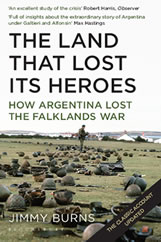Much of the Vatican-including its majority of civil servants and regular press corps- is on holiday although evidently not Pope Francis.
On Wednesday of this week he resumed his weekly general audience after a month partly caught up in challenging foreign travels, some at life-threatening high altitudes, and spoke in a way that once again generated global new stories. This is a Pope that draws attention, rarely in a negative sense.
Pope Francis called for a church of “open doors” to divorced Catholics and their families, reviving the ongoing debate as to far the Catholic Church should tease the ban on Communion for couples who remarry without a church annulment.
Once again the tone and language of what Pope Francis has to say is what’s striking rather than its substance for here he was respectfully addressing traditional Church teaching but with a prevailing sense of compassion for those in need of healing and true reconciliation.
Referring to remarried divorced couples, the pope, said “the church knows well that such a situation contradicts the Christian sacrament (of marriage).” But he emphasized, “these people are not at all excommunicated.” “They always belong to the church,” Francis said. The church, he said, must be one of “open doors.”
This is a Pope that evidently speaks from the heart but not without method. Ahead of the Synod of Cardinals on the Family in October, he is not imposing his authority but opening an umbrella under which different views can be freely expressed. He wants Church leaders to break out of their inwards looking, silo, self-protective mentality, which allowed scandals to proliferate under his predecessors, and engage not just with each other but with the world at large.
The theme of collegiality was much emphasised during the Second Vatican Council but in practice had fallen by the wayside during the papacy of John Paul 11 after he raised false expectations with his 1995 encyclical Ut Unum Sint. Despite the encyclical’s call on Christian leaders to help the Pope find a new ‘way of exercising (papal) primacy’, no reform was put in motion. Only during the years of Benedict XV1 was the issue revived to the point of being seriously discussed in the meetings of cardinals that preceded to the conclave that elected a Pope of Good Promise in 2013.
Francis’s instinctiveness worries some traditionalists but it be wrong to conclude his papacy is rudderless. He is drawing on his years of experience of political manoeuvring and administrative experience in his native Argentine and within the wider Latin American church, consulting on reform, and looking for a way forward that broadens rather than limits the good news of the Gospels.
His papacy has a Jesuit in the driving seat, approaching Church teaching with only one dogmatic certainty that God is in all things, and that he is also full of surprises. As Francis told fellow Jesuit Antonio Spadaro: “We must walk united with our differences there is no other way to become one. This is the way of Jesus.”

